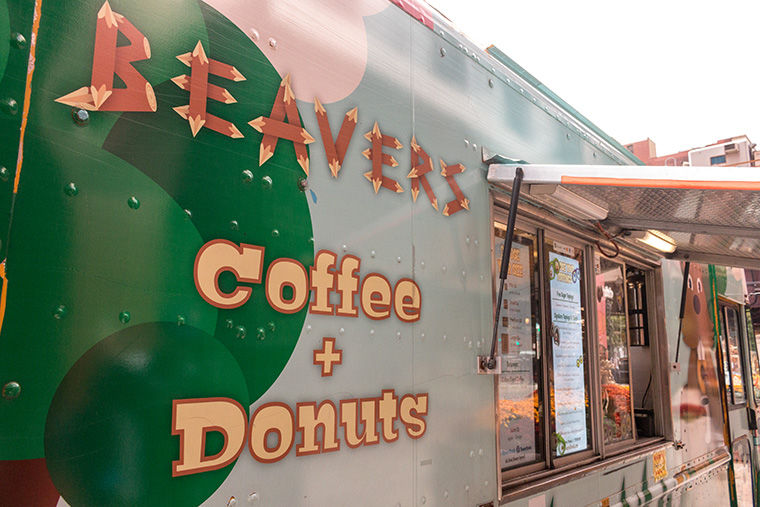Local food trucks struggle with new policies
Beavers Coffee and Donuts owner, Gabriel Wiesen, said Chicago has only 70 food trucks compared to Los Angles, which has thousands.
October 24, 2016
Chicago food trucks are facing major hurdles as Mayor Rahm Emanuel has “threatened to unleash an onslaught of fines and citations” against the city’s growing industry, according to a statement on IllinoisPolicy.org.
Head of the Illinois Food Truck Association and owner of Beavers Donuts, Gabriel Wiesen, said Chicago has fewer than 70 food trucks, while New York City has more than 3,500, and Los Angles has more than 10,000.
Wiesen said some of the concessions that were made in place to appease restaurants and the aldermen that they lobbied were unfair restrictions.
“The argument that food trucks unfairly compete with restaurants is ridiculous,” he said.
Previous city laws have supported food truck businesses. In 2012, Emanuel introduced an ordinance that legalized food truck businesses that fell under the categories: food to order, food truck stands across the city, increased hours of operation, and regular health inspections and training, according to the July 25, 2012 City of Chicago press release.
Now, food truck businesses must refrain from operating within 200 feet of a brick-and-mortar restaurant and are only able to park for a maximum of two hours. According to IllinoisPolicy.org, this forces businesses to fight each other for limited operating space in downtown Chicago, and the two-hour limit leaves very little time to prepare fresh food and serve customers.
Diana Rickert, spokeswoman for the Illinois Policy Institute, which has been working with the food truck industry and owners for several years, said the institute is trying its best to protect the business’ economic rights. The organization has been reaching out to press and reporters and working with the community, she added.
“It’s really difficult to run a business when you can only be open for two hours a day,” Rickert said. “If there’s a two-hour limitation on food trucks, food trucks are faced with either driving away from customers or facing a $1,000 fine.”
On Oct. 19 at the Daley Center, 50 W. Washington St., a Chicago judge heard the final arguments about the constitutional of laws that affect that the food truck owners. The judge will rule in December, as reported Oct. 19 by CBS Chicago.
According to an Oct. 20 emailed statement from Mika Stambaugh, director of Public Information for the Department of Businesses Affairs and Consumer Protection, small businesses are important parts of the community, and food trucks are a “vital” part of the city’s culinary landscape.
However, she added, Chicago increased efforts this year to enforce the 2012 ordinance, which originally gave time for the businesses to adjust to the new rules, after discovering some trucks were violating codes, including parking in tow zones as well as fire and bus lanes. Businesses were also exceeding the two-hour parking limit.
“This type of behavior is illegal for all vehicles and will not be tolerated,” Stambaugh said in the emailed statement.
Manager of Sweet Ride Lupita Kuri, who recently relocated to the Chicago suburbs because of the rules and regulations, said the cities regulations are “ridiculous.”
“It got so bad that I had to step away. It’s not worth it, even if I were to make $10,000 a day,” she said. “[The city is] expecting trucks every week, every day. They [the city] stop businesses. They bother them.”








